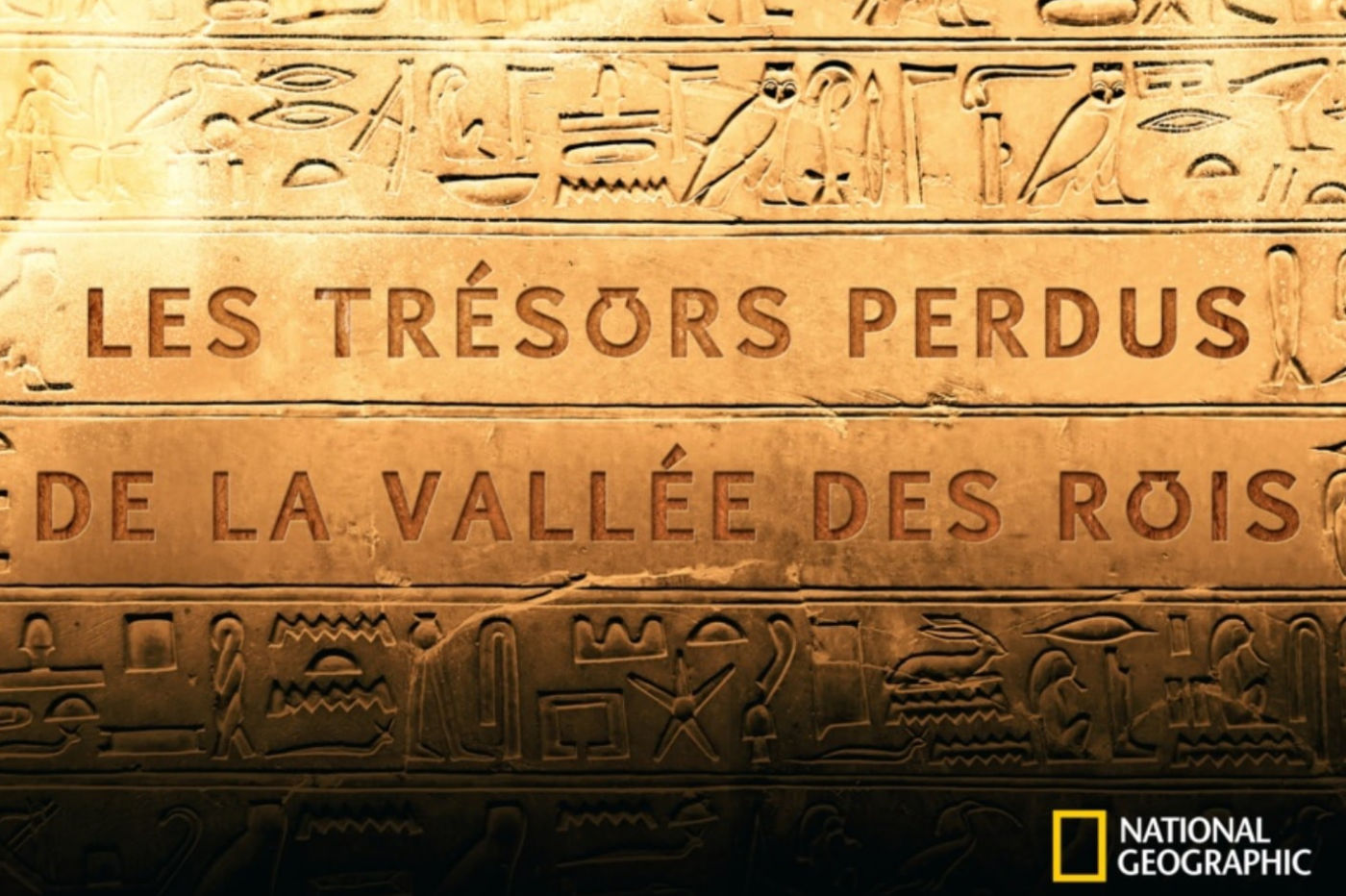
On the occasion of the release of “Lost Treasures of the Valley of the Kings” on National Geographic, we spoke with Meredith Brand, an archaeologist.
Egypt has always been an open-air archaeological treasure trove. If the pyramids of Giza or the Sphinx are among the most famous monuments in the world, they are only a tiny demonstration of the power of Egyptian civilization. 2000 years later, the pharaohs still fascinate scientists around the world, such as Meredith Brand, an archaeologist specializing in ancient Egypt.
On the occasion of the third season of the series “Lost Treasures of the Valley of the Kings” available on National Geographic, Meredith Brand, doctoral student from the University of Toronto in archeology, specialist in the art of pottery in ancient Egypt, came to tell us the secrets of her trade, and to share with us her passion for history with a capital H.
JDG: To begin with, could you explain to us where this love for Egypt and history in general comes from?
MB: I think I’ve always been fascinated by history, because it’s one of the things that best fits the way I think. As soon as I am told a historical fact, my brain always seeks to understand why it happened, what was the social, economic and cultural context at the time which generated this phenomenon. In the end, what really excites me is to understand the little story hidden behind the main lines that we all know.
Regarding ancient Egypt, I think that at first I was really fascinated by their know-how, their ability to draw, to build. It’s really very impressive to see how talented they were. It was really that first idea that got me interested in Egypt and its history, and then the more I studied the pharaohs and all that stuff, the more I tried to understand how the “normal” people of the era.
JDG: Why is it important for you to know how people lived at that time?
I think that’s the most useful thing for us today. If you understand how everyone lived at that time, then you are able to compare yourself to him, and that’s where the story makes the most sense. We can thus question our current system by comparing it to what was done before, whether from an economic, political or even social point of view.
Then knowing how people lived, I find that very important to understand how things happened. If we take the example of the pyramids, we know today how technically they were made, but if we know how people lived at that time, we are able to understand what their state of mind was that time. It’s really fascinating to immerse yourself in this world, to understand the political workings of the time with all the problems that it could cause on a daily basis.
JDG: You are featured in National Geographic’s “Lost Treasures of the Valley of the Kings” series, is it important for you to pass on this knowledge and this passion?
I think that’s the main reason why I do this job. The idea behind my research is above all to share my discoveries with as many people as possible. Of course, I like to talk with colleagues or students about a few details of Egyptian history, but that’s not the most important thing.
The main thing is really to do this work of popularization so that our knowledge and our knowledge continue with an ever larger public. I’ve always enjoyed talking to people, even those who don’t know much about it. Explaining to them how Egypt functioned is also helping them to understand their past, to see how the world was turning at the time, and, as I was saying earlier, it allows us to question ourselves in our current world.
JDG: Is there also a real challenge for you as an archaeologist?
Yeah, I think we can’t deny that. If we manage to make the general public aware of our work, this will prevent people from degrading potential excavation sites, often out of lack of knowledge. If we manage to create a connection with as many people as possible between our current life and this distant past, we, as archaeologists, have a better chance of seeing our sites preserved.
JDG: How would you describe your experience with National Geographic?
It was really very fun. In particular the episode around Cleopatra who is an important historical figure on whom many myths and legends are built. It is very interesting to see how we judge his life with our current outlook and our current problem. This series is above all a very good way to create interest in people, to perhaps give birth to vocations.
JDG: Doing series like National Geographic also allows you to desacralize your profession and learn more about you?
Yes, of course, and that’s a very good thing. A lot of people think of us as Indiana Jones treasure seekers, but that’s not our life. We are rather looking for the story behind an object or a place. The general public generally stops at the material object, but we want to go further. This is particularly what we do when we teach, we discuss our discoveries with our students, and I love that, it’s very enriching. Everyone goes there with their little theory and it helps to build a more precise idea of how the Egyptian world was at the time.
JDG: You said you teach, you are also in the field for excavations, in the end what does an archaeologist’s schedule look like?
It’s very difficult to say! It’s rare to have two weeks that look the same, but if I had to describe this last month, I have essentially divided my time between classes at Cairo University where I teach, but also field excavations . Currently I am with an expedition all the way south of Egypt, but I go back to Cairo twice a week for college. In the end, my life boils down to a lot of back and forth right now (laughs).
Then I also do interviews, appearances for the general public in order to raise as much awareness as possible about archeology and the understanding of our past. It’s an important part of my job, which I enjoy doing. It’s always nice to appear in the newspapers or on television, so I do that too. In the end, I have a really busy schedule, and things are constantly changing.
JDG: Egypt has been at the heart of excavations and research for decades, do you think that one day we will have found everything?
I think there will always be something to find underground. We are still very far from having discovered everything. Doing excavations is something very complex that requires a lot of resources whether from a technical, financial, but also human point of view, so we cannot do them everywhere, and yet it would be necessary if the we wanted to find everything.
Even after years of excavation, we are still discovering very interesting things in the Egyptian subsoil. But on top of that, the arrival of new technologies has completely reshuffled the cards. In particular, this allows archaeologists to rethink their discoveries, analyzing them with new information.
Thanks to advances in chemistry or physics, we are now able to learn even more about places that we discovered years or even decades ago. If we take the example of pottery (which is his field of study)you can see on some of them that there is a slight residue inside or on the edges.
Until a few years ago, we were unable to learn more about it, but today chemistry makes it possible to know what was in the pot, thanks to this very thin layer of residues which has survived through the centuries. We can thus know what it was used for 2000 or 3000 years ago.
With advances in new technologies, we will completely rethink and re-analyze our findings. It’s really something exciting, we think that everything can be rediscovered in a certain way. Even places like the pyramids that we have excavated from top to bottom, we are still today able to discover new things with new technologies.
JDG: It is more and more common today to hear people say that “history is useless” what would you have to answer them?
That history is very important, we often take the example of “knowing your past allows you to have a better future”, but I really think that is the case. It is crucial to know its history well, it allows us not to make the same mistakes again. But I think the most important thing is not even that, it’s just that learning about his past makes us more human. By understanding how those who preceded us lived, we understand a little better who we are and where we come from.



